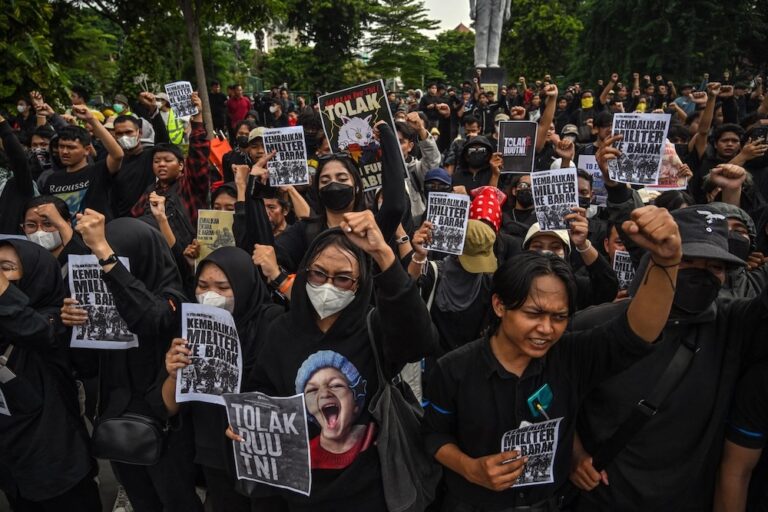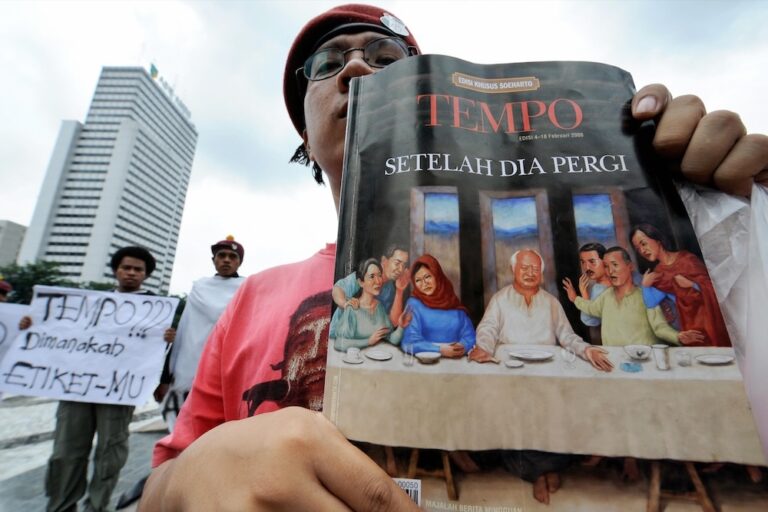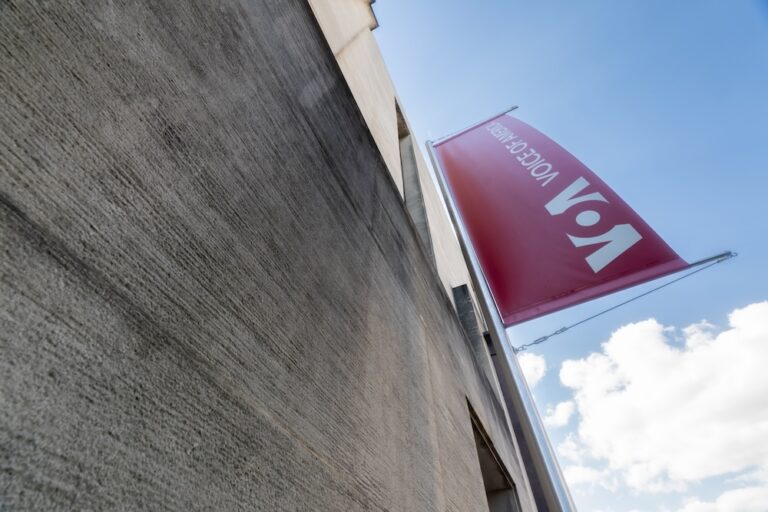Petitioners argued that the articles mentioned in the ruling have been misused to criminalize the work of human rights activists, journalists, and state critics.
This statement was originally published on aji.or.id on 17 April 2024.
Indonesia’s Constitutional Court has annulled two articles on fake news that could lead to riots, Article 14 and Article 15 of Law No. 1/1946 and Article 310 paragraph (1) on defamation regulated in the Criminal Code.
According to the Constitutional Court judges, these articles do not provide recognition, guarantees, protection and certainty of a just law and equal treatment before the law for every citizen as guaranteed in the Indonesian Constitution.
The decision was announced by the Constitutional Court judges on Thursday, March 21, 2024. The judicial review lawsuit was filed by two human rights defenders, Haris Azhar and Fatiah Maulidiyanti, as well as two organizations, the Indonesian Legal Aid Foundation (YLBHI), and the Alliance of Independent Journalists (AJI).
The Constitutional judges believe that the fake news article is ambiguous because it lacks clear parameters, which can limit the right of individuals to express their opinions. The use of the word “riot” in the article also has the potential to result in multiple interpretations, because there are different gradations between uproar, riot, and commotion.
The definition of fake news, which has no clear benchmarks, could potentially be used as a legal basis to convict perpetrators without identifying whether the perpetrator was spreading false news intentionally or in the context of providing constructive criticism.
“Thus, the public no longer has the freedom to express opinions as a form of public participation in democratic life,” said the Constitutional judge.
The judicial review was filed after Haris Azhar and Fatia Maulidayanti, two human rights activists, were criminalized under the defamation and fake news articles. They were reported by the Coordinating Minister for Maritime Affairs and Investment, Luhut Binsar Pandjaitan (LBP), after they shared their research on Minister Luhut’s alleged shareholding in the mining business in Intan Jaya, Papua through a podcast broadcast on Youtube. Both have been acquitted at the first Court in Jakarta.
The fake news and defamation articles have been a threat to freedom of expression. These articles have been misused to criminalize human rights activists, journalists, and other critics. Processed from SAFEnet data from 2020-2023, there were 32 cases related to the fake news article and 11 cases concerning Article 310 of the Criminal Code. The fake news article began to be used in the midst of the 2019 elections and became more prevalent in 2020, during the Covid-19 pandemic.
One case of misuse of the fake news article has ensnared 3 farmers in Pakel, Banyuwangi, East Java, namely Suwarno, Mulyadi, and Untung in 2023. All three were imprisoned and convicted of spreading fake news after fighting to defend their land from corporation.
AJI Indonesia Chairman Sasmito said the Constitutional Court’s decision is very important for freedom of expression and press freedom. After the 2019 elections, the fake news article was increasingly used by public officials and became a new way of repressing citizens in the digital era. Anyone who published criticism and news that were thought to be hoaxes could face a 10-year prison sentence according to the article.
AJI Indonesia noted that there were 4 journalists who had been charged by the police and public prosecutors by linking the Electronic Information and Transaction Law article with the fake news article.
“Under the pretext of fighting fake news, state actors and non-state actors abuse the article to repress criticism in the digital space. Even though the fake news article in Law Number 1 of 1946 was born one year after Indonesia’s independence, at that time there was no internet,” Sasmito said.
With the removal of the articles on fake news and defamation in the Criminal Code, Sasmito urged the House of Representatives and President of Indonesia to revoke similar articles adopted in the second amendment to the Electronic Information and Transaction Law that was implemented in 2024 and the new Criminal Code that will take effect in 2026.
Sasmito said the problem of fake news should be solved by intensifying digital literacy into education, encouraging social media platforms to improve content moderation, ensuring transparent access to information, and improving the quality of journalism.
In addition, regarding defamation, the Indonesian government should decriminalize it as has been done in 50 countries.
According to one of the lawyers, Feri Amsari from Themis Indonesia, the Constitutional Court’s decision should be appreciated as an effort to uphold the guarantee of freedom to convey and manage information through various media is protected by Indonesia’s Constitution.
So, all cases of criminalization of citizens using the provisions of Articles 14 and 15 of Law Number 1 Year 1946 must be canceled and may no longer be used by law enforcement officials. “Disobedience to the Constitutional Court Decision is an act against the constitution,” said Feri.
Lokataru Foundation Executive Director Delpedro Marhaen said that the Constitutional Court’s decision provides little hope regarding the protection of civil liberties in Indonesia. The decision should be a precedent and consideration for the Constitutional Court in the future to cancel ambiguous articles that are still contained in the New Criminal Code and the latest ITE Law, if tested in the future.
This decision should also serve as a rationale for judges in the general courts and law enforcement officials that defamation and the spread of false news should not be used as a tool to suppress criticism by the public.



